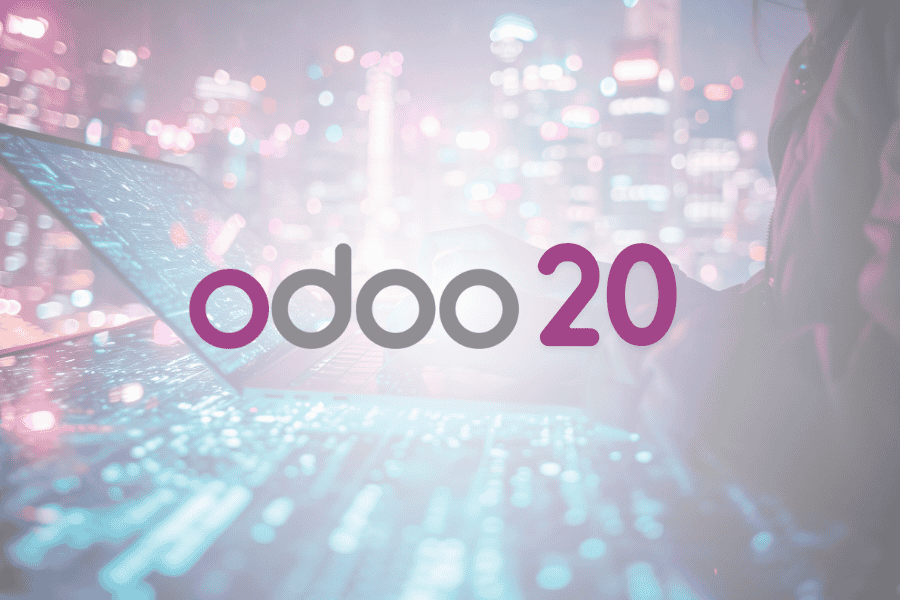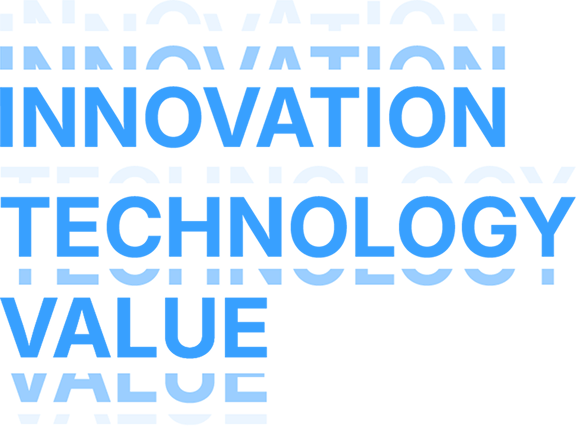Just a few years ago, the idea of an AI system generating a clinical summary or proposing a drug molecule sounded like science fiction. Today, it’s becoming a clinical reality. Generative AI – the technology behind tools that can write, design, and reason, is quietly starting to rewire the very foundation of healthcare. In this blog, we’ll uncover the key GenAI trends in healthcare today and what they mean for tomorrow’s medicine.
What is Generative AI and Why It’s Poised to Reshape Healthcare
Unlike conventional AI, which analyzes and predicts based on existing patterns, Generative AI creates. It can generate medical text, simulate clinical scenarios, reconstruct synthetic medical images, and even hypothesize drug molecules, all by learning from vast datasets and applying that knowledge creatively.
In other words, GenAI doesn’t just answer questions, it imagines possibilities.
This next-generation capability is opening up powerful new directions for how healthcare is researched, delivered, and experienced. It’s especially critical in data-heavy areas like radiology, genomics, drug discovery, and clinical documentation.
How GenAI Differs from Traditional AI in Healthcare
| Traditional AI | Generative AI (GenAI) |
| Makes predictions from data | Creates new outputs from learned |
| Detects tumors in scans | Simulates rare tumors |
| Flags potential diagnoses | Writes clinical reports or SOAP notes |
| Analyzes drug interactions | Suggests new compound structures |
Read more: Generative AI in Healthcare: Transforming Care with Intelligence That Creates
Why Now? The Rise of GenAI in Healthcare
Here are four major forces converging to make GenAI more relevant, and more powerful, than ever before.
Unprecedented Availability of Medical Data
For years, hospitals and clinics have been collecting massive amounts of patient data — from electronic health records (EHRs), lab results, and diagnostic images to data from wearable devices. The problem? Most of this information is unstructured, fragmented, and hard to analyze. Until now.
Generative AI can unlock this data by turning it into meaningful, usable insights:
- Summarizing patient histories automatically
- Detecting early health risks across populations
- Generating synthetic datasets for research and training
Maturation of Large Language Models (LLMs)
Traditional AI could crunch numbers, but it struggled with the nuances of human language, especially clinical language. That’s changing fast. Thanks to the rise of domain-optimized Large Language Models (LLMs) like GPT-4, Med-PaLM, and BioBERT, AI can now:
- Understand complex clinical notes
- Write discharge summaries
- Explain medical conditions in plain language
Urgency for Speed, Efficiency & Innovation
Post-pandemic, speed is no longer a luxury in healthcare — it’s a necessity. From diagnostics and clinical documentation to drug discovery and operational decisions, everything needs to happen faster.
GenAI helps:
- Reduce paperwork bottlenecks
- Accelerate clinical decision-making
- Shorten R&D cycles for new treatments
Chronic Workforce Shortages
The global shortage of healthcare workers is reaching crisis levels. Clinicians are drowning in administrative tasks that take away from time with patients.
GenAI can help by:
- Drafting clinical notes during consultations
- Answering routine patient questions with chatbots
- Automating form-filling, summaries, and billing documents
Top 6 GenAI Trends in Healthcare in 2026
Revolutionizing Drug Discovery with GenAI
One of the most exciting applications of Generative AI is in the field of drug discovery. The traditional process of discovering a new drug can take over 10 years and cost billions of dollars. However, GenAI is dramatically accelerating this process by generating synthetic molecules that can potentially become new therapeutic agents.
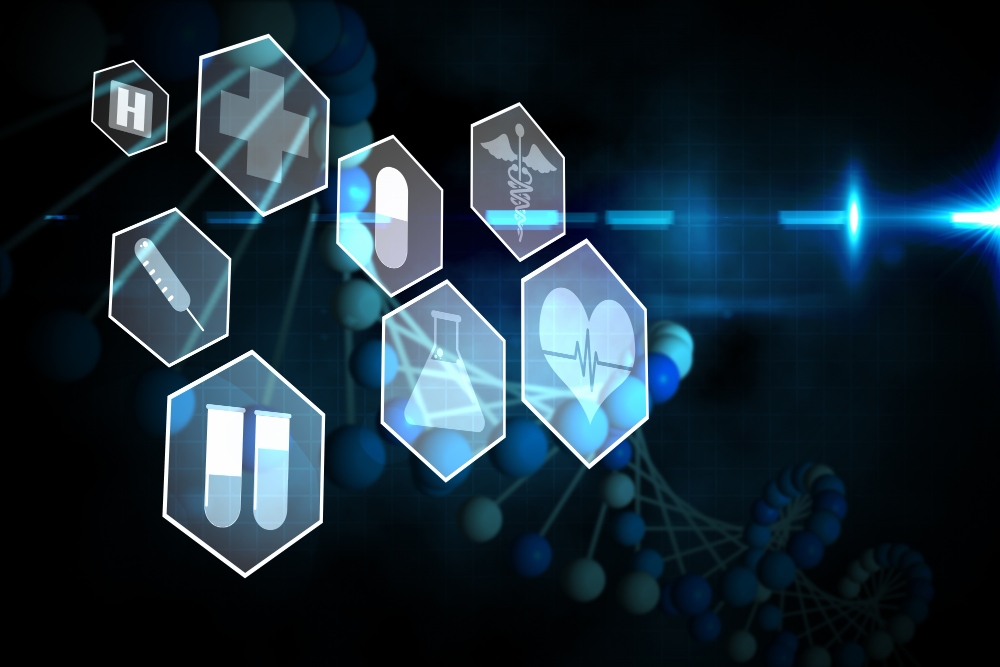
GenAI models use massive datasets of molecular information to design novel compounds that could interact with specific biological targets. These AI-generated compounds can then be tested in a lab, reducing the time and cost associated with traditional trial-and-error drug discovery processes.
Trend
- Generative models like GANs (Generative Adversarial Networks) and variational autoencoders are now used to predict the activity of molecules, identify potential drug candidates, and optimize molecular structures for higher efficacy and lower toxicity.
- By generating new molecules based on existing ones, GenAI can predict the best candidates for drug trials, significantly reducing early-stage failure rates.
Impact
- A 30-50% reduction in the time taken to bring new drugs to market.
- Lower research costs for pharmaceutical companies and biotech startups.
- Increased access to innovative treatments, particularly in areas with high unmet needs, such as rare diseases or cancers.
Personalized Treatment Plans: Harnessing AI for Tailored Care
Personalized medicine is the future of healthcare. By tailoring treatments to individual patients based on their unique genetic makeup, lifestyle, and environmental factors, healthcare providers can improve treatment efficacy and reduce side effects.

GenAI is making personalized medicine a reality by analyzing patient data, including genomic information, medical history, and real-time health metrics. AI-driven models can then generate personalized treatment plans, recommending specific therapies that are most likely to succeed based on each patient’s individual characteristics.
Trend
- Generative AI models are assisting clinicians in designing treatment protocols that align with patients’ genetic profiles, predicting how patients will respond to specific medications.
- AI-driven genomic sequencing can generate personalized molecular profiles, helping oncologists select the most appropriate chemotherapy or immunotherapy for cancer patients.
Impact
- Higher treatment success rates due to more precise targeting of interventions.
- Faster recovery times and reduced hospital readmission rates.
- Enhanced patient satisfaction as they experience more individualized care.
GenAI in Medical Imaging: Creating Synthetic Data for Training and Diagnosis
While AI has already made significant strides in medical imaging, GenAI is taking this technology a step further. GenAI can generate synthetic medical images that closely resemble real-world images. These synthetic images can be used to train AI models, improve diagnostic tools, and even assist radiologists in identifying anomalies like tumors or fractures.

Trend
- Generative models are being used to create high-quality synthetic images for training AI models, especially in fields like radiology and pathology. These images can help mitigate the issue of data scarcity and allow for the development of AI models even in areas where real medical images are hard to come by.
- AI systems can now generate synthetic X-rays, CT scans, and MRI images, allowing for enhanced medical training and better diagnostic tools.
Impact
- Increased diagnostic accuracy as AI models become better at detecting subtle patterns in images.
- The ability to train AI systems without the need for large datasets of real patient data, ensuring patient privacy and data protection.
- Improved accessibility to AI-driven diagnostic tools in regions where medical image data is scarce.
Synthetic Patient Data for Clinical Trials: Overcoming Privacy Concerns
Clinical trials are essential to the development of new medical treatments, but they often face challenges, including privacy concerns and limited access to diverse patient populations. GenAI can play a crucial role in overcoming these challenges by generating synthetic patient data that mirrors real-world medical data without compromising privacy.
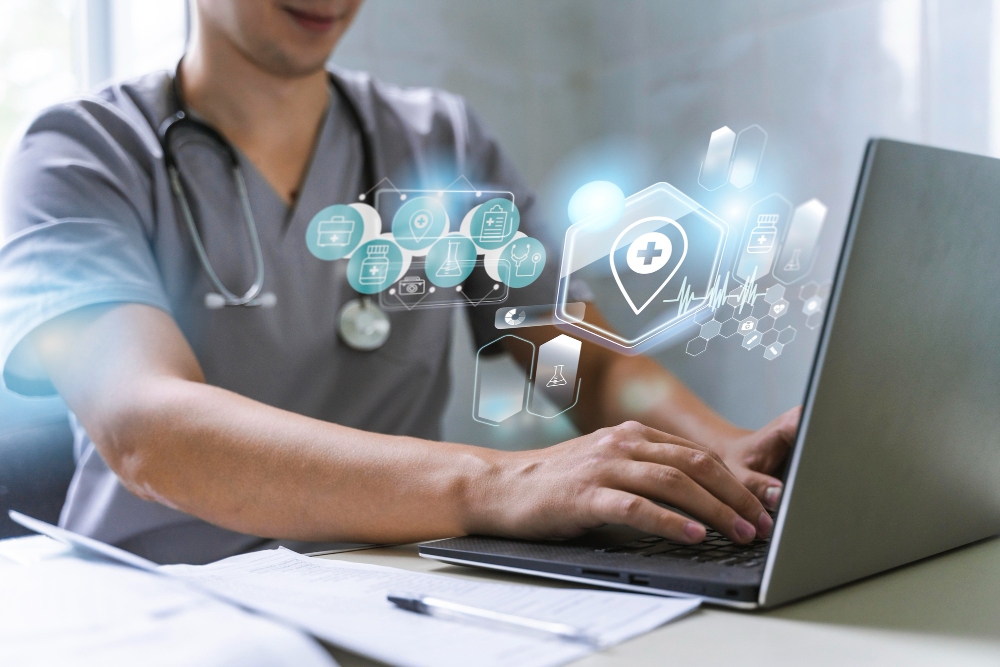
By generating synthetic datasets, researchers can simulate the effects of different interventions on various patient demographics, enabling more comprehensive and inclusive clinical trials. These synthetic datasets can be used to test drugs, monitor disease progression, and predict patient outcomes.
Trend
- AI models are generating synthetic patient populations based on demographic, genetic, and clinical data to conduct simulation trials.
- These synthetic datasets ensure that privacy and confidentiality are maintained while allowing researchers to test drugs across diverse patient profiles.
Impact
- Faster recruitment and testing for clinical trials, as synthetic data can be used in place of real-world patient data.
- Better representation of diverse populations in clinical trials improves the generalizability of results.
- Enhanced patient privacy and security, as no real patient data is used in the training process.
AI-Generated Medical Texts: Revolutionizing Documentation and Medical Research
Another promising application of Generative AI in healthcare is in the field of medical documentation. AI models are now capable of generating high-quality medical texts that can assist healthcare professionals with clinical notes, research papers, and even patient reports.
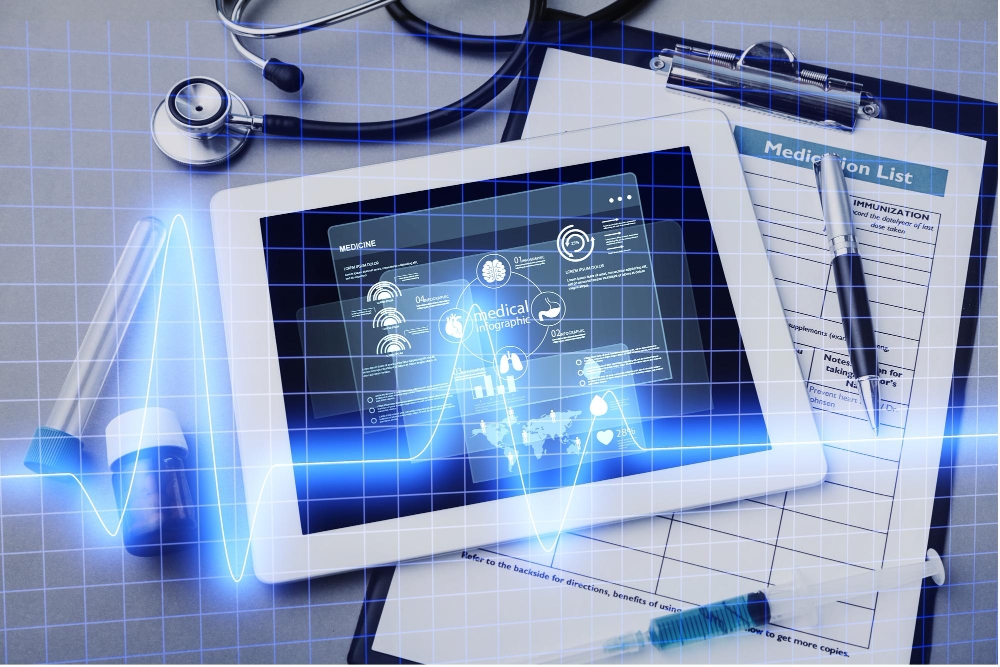
AI-generated medical texts can automate the documentation process, saving time for clinicians and allowing them to focus more on patient care. Moreover, GenAI models can assist in writing research papers, analyzing vast amounts of medical literature, and summarizing key findings, which helps accelerate the discovery of new insights.
Trend
- Natural Language Processing (NLP) and Generative AI models are increasingly being used to create accurate and detailed medical documentation and reports.
- AI systems are assisting in writing and generating medical research papers, summarizing findings, and even proposing new avenues of study.
Impact
- Significant time savings for healthcare providers and researchers.
- Improved documentation accuracy, as AI systems can cross-reference clinical data and ensure consistency.
- Faster research dissemination and more efficient study design, enabling quicker medical advancements.
Virtual Health Assistants: Generating Real-time Healthcare Guidance
Virtual health assistants powered by GenAI are becoming an increasingly common feature in patient care. These assistants use natural language generation (NLG) to provide patients with personalized health advice based on real-time data. Whether it’s answering a medical question, reminding patients to take their medication, or offering health tips, GenAI-powered assistants can improve patient engagement and adherence to treatment plans.
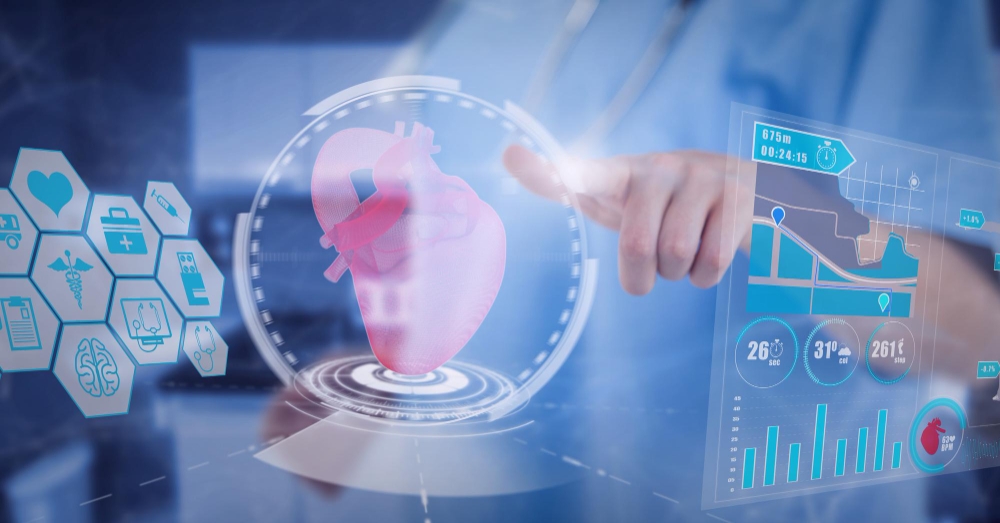
Trend
- GenAI models are able to generate personalized responses to health queries, using medical knowledge databases to offer evidence-based recommendations.
- Virtual assistants are now able to provide real-time health advice, helping patients manage chronic conditions, track medication adherence, and even prevent future health issues.
Impact
- Enhanced patient engagement and adherence to prescribed treatment plans.
- Cost-effective patient support and improved outcomes, as patients receive immediate assistance without the need for in-person consultations.
- A more personalized healthcare experience, where patients feel more involved and informed in their care process.
Conclusion
GenAI trends in healthcare is more visible since every health system is under pressure to do more, do it faster, and do it better. GenAI can help. But only if it’s built to fit the real world of healthcare. We help turn bold ideas into practical tools, combining GenAI, healthcare logic, and real-world reliability into platforms that serve patients, support clinicians, and scale with your ambition.
Talk to our AI experts and turn your GenAI vision into reality
![[FREE EBOOK] Strategic Vietnam IT Outsourcing: Optimizing Cost and Workforce Efficiency](https://vti.com.vn/wp-content/uploads/2023/08/cover-mockup_ebook-it-outsourcing-20230331111004-ynxdn-1.png)


